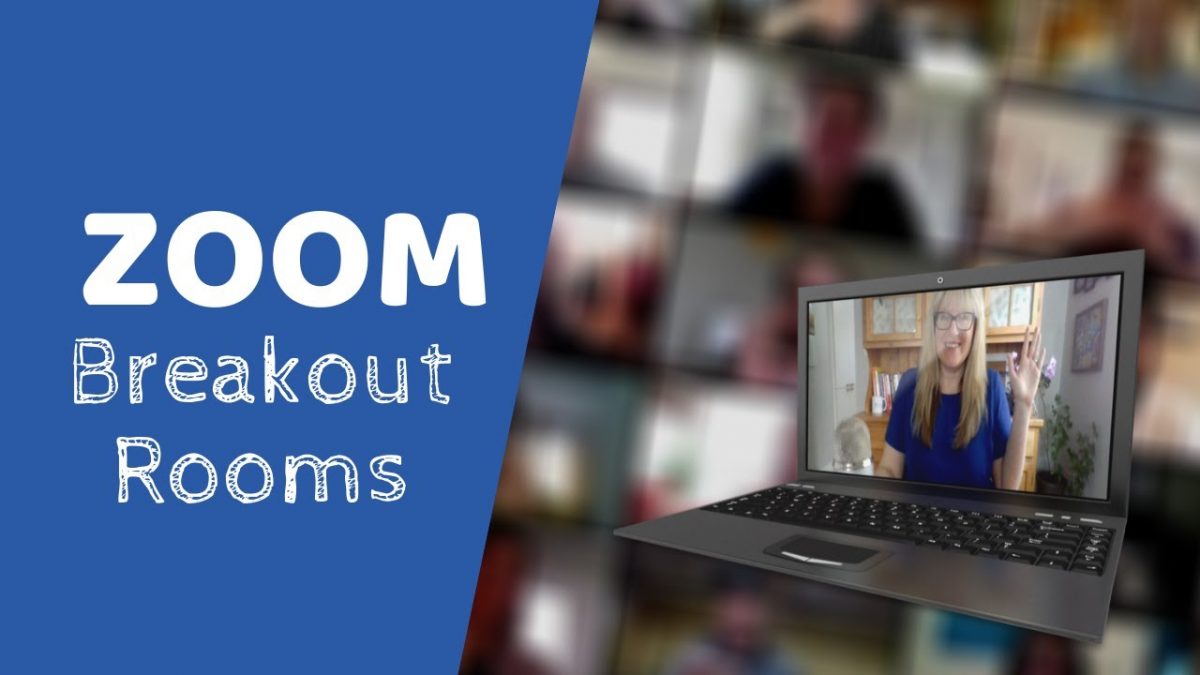5 Tips For Amazing Zoom Breakout Rooms
Zoom Breakout rooms are a useful feature used by anyone who hosts large meetings with people working together in smaller group discussions. Breakout rooms have a multitude of uses across any organization with Zoom including the video and acoustic setup. We wrote this article on 5 Tips to Make sure your Zoom Breakout Rooms are built properly to ensure your team does not miss a step when launching a breakout room causing pandemonium among your team. If you are new to Zoom Breakout Rooms or not sure where to start, check out our AV Calulator blog where you can generate a budget of possible costs for a build-out. Of course, each Zoom Room is unique and we can deliver a free design quote specifically to your conference room, just contact us!
 Before starting a breakout room session, take time to practice all the different functionality of Zoom Breakout Rooms. Once breakout rooms are launched, the meeting host can jump between breakout sessions. The host can also push out a public message to everyone in the breakout rooms which everyone will receive as a notification on their Zoom Meeting application. Each breakout room can share its own content and run its own Zoom meeting. Once the breakout rooms are in session they can be manually or automatically merged back into the main session merging everyone back together. All the features of a Zoom meeting work the same in a breakout room. Before starting your breakout rooms, you need to determine how long the breakout sessions should last and if there will be a hard or soft ending to the breakout room session.
Before starting a breakout room session, take time to practice all the different functionality of Zoom Breakout Rooms. Once breakout rooms are launched, the meeting host can jump between breakout sessions. The host can also push out a public message to everyone in the breakout rooms which everyone will receive as a notification on their Zoom Meeting application. Each breakout room can share its own content and run its own Zoom meeting. Once the breakout rooms are in session they can be manually or automatically merged back into the main session merging everyone back together. All the features of a Zoom meeting work the same in a breakout room. Before starting your breakout rooms, you need to determine how long the breakout sessions should last and if there will be a hard or soft ending to the breakout room session.
Here are our 5 tips to make sure your Zoom Breakout Rooms are setup properly:
Tip#1: Pre-configure Your Breakout Room Structure
Setting up your breakout rooms before the meeting starts is a game-changer for smooth session management. Take time to create meaningful team names that align with your meeting objectives. Whether you’re organizing groups by project, topic, or function, clear naming conventions help participants quickly understand their assignments and purpose. Also, you might look to add Zoom Room Backgrounds in a virtual setting which can add to your brand.
Tip#2: Strategically Assign Zoom Participants
Rather than random assignments, thoughtfully distribute participants across breakout rooms to maximize productivity and interaction. Consider factors such as:
- Mixing skill levels and expertise
- Balancing team sizes
- Ensuring diversity of perspectives
- Grouping complementary roles together
This deliberate approach fosters more meaningful discussions and better outcomes from your breakout sessions.
Tip#3: Configure Zoom Room Exit Settings
One often overlooked aspect of breakout room management is controlling how participants can exit their assigned rooms. Decide whether to:
- Allow participants to return to the main session at will
- Restrict movement until the breakout session ends
- Enable “Ask for Help” features
Your choice should align with your meeting goals and the level of structure needed for your activities.
Tip#4: Implement Strategic Timing Controls
Effective time management is crucial for productive breakout sessions. Set up your timer controls to:
- Define clear duration for activities
- Configure automatic notifications when time is running low
- Plan whether to end sessions manually or automatically
- Include buffer time for transitions
Remember to give participants enough time to engage meaningfully while keeping the overall session on schedule.
Tip#5: Master Host Navigation Techniques Zoom
As a host, your ability to move efficiently between breakout rooms is essential for supporting participants. Familiarize yourself with:
- Keyboard shortcuts for quick room transitions
- How to broadcast messages to all rooms
- Methods for joining rooms without disrupting discussions
- Techniques for monitoring multiple rooms effectively
Practice these navigation skills before your meeting to ensure you can provide timely support when needed.

Zoom Breakout Rooms are designed to let large groups of people independently talk in smaller groups separately and then rejoin the larger session. If you have ever run a classroom before you can understand how challenging this might be. You might run into a variety of needs at some point including troubleshooting Zoom cameras and more, so we would be happy to discuss this prior to you investing in a Zoom Room. Plus, if you are considering Zoom Rooms vs. Teams Rooms we have experience in both deployments and can explain the pro and cons of each!

Recent Posts
- The Complete Oracle FastConnect Guide: Architecture, Routing, Security, and Enterprise Connectivity Design
- Telecom Expense Management (TEM): The Definitive Guide for Mid-Large Enterprises
- Designing Secure and Compliant Networks in China: The Definitive Guide for Global Enterprises
- Securing Autonomous AI Agents: Identity-Anchored Autonomy for Enterprise Risk & Resilience
- The Definitive Guide to Enterprise Telecom Agreements: MSA, SLA, and DIA Negotiation Best Practices for Global Carriers
Archives
- December 2025
- October 2025
- September 2025
- August 2025
- July 2025
- June 2025
- May 2025
- April 2025
- March 2025
- February 2025
- January 2025
- December 2024
- November 2024
- October 2024
- September 2024
- August 2024
- July 2024
- June 2024
- May 2024
- April 2024
- March 2024
- February 2024
- January 2024
- December 2023
- November 2023
- October 2023
- September 2023
- August 2023
- July 2023
- June 2023
- May 2023
- April 2023
- March 2023
- February 2023
- January 2023
- December 2022
- November 2022
- October 2022
- September 2022
- August 2022
- July 2022
- June 2022
- May 2022
- April 2022
- March 2022
- February 2022
- January 2022
- December 2021
- November 2021
- October 2021
- September 2021
- August 2021
- July 2021
- June 2021
- May 2021
- April 2021
- March 2021
- December 2020
- September 2020
- August 2020
- July 2020
- June 2020
Categories
- Clients (12)
- Telecom Expense Management (1)
- Satellite (1)
- Artificial Intelligence (9)
- Travel (1)
- Sports (1)
- Music (1)
- News (282)
- Design (4)
- Uncategorized (1)
- All (19)
- Tips & tricks (25)
- Inspiration (9)
- Client story (1)
- Unified Communications (196)
- Wide Area Network (309)
- Cloud SaaS (60)
- Security Services (71)




